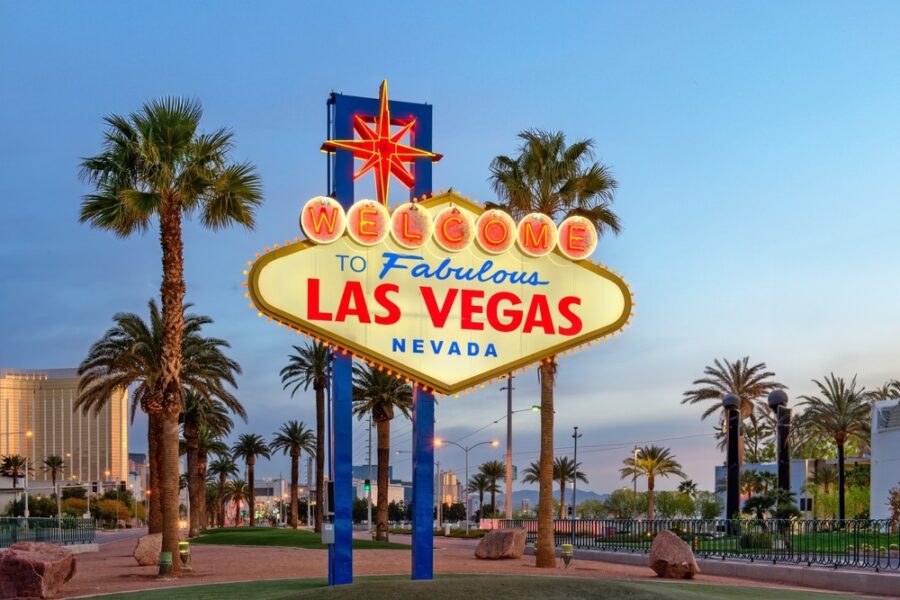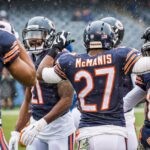Nevada Gaming Control Board warns licensees that sports event contracts are wagers

The Nevada Gaming Control Board has circulated a notice to licensees clarifying that it regards sports event contracts as wagers.
Sent on Wednesday, Notice 2025-77 acknowledged that licensees and affiliates had expressed an interest in the growing event prediction market and said the regulator had been receiving direct enquiries about its stance on sports event contracts.
The notice said that sports event contracts fall under the state’s definition of wagering and therefore require a full sports pool license in Nevada.
According to the notice, the classification applies even when such contracts are listed on federally regulated exchanges, including those supervised by the Commodity Futures Trading Commission.
Examples include bets or prediction contracts on the World Series of Poker, the Oscars, esports competitions, or political elections.
The regulator said these “sports and other event contracts” can only be offered in Nevada by entities holding a non-restricted gaming license with sports-pool approval, and that operators must comply with all existing regulations governing sports wagering accounts and book systems.
Licensees that partner with firms offering event contracts elsewhere without proper authorization could face disciplinary action or have their suitability questioned under the Gaming Control Act.
The regulator warned that engaging in or associating with unlawful wagering in another state “may call into question the good character and integrity of the licensee.”
In Pennsylvania, the Pennsylvania Gaming Control Board Executive Director has also called for lawmakers to press the Commodity Futures Trading Commission on the growth of sports prediction markets.
Abi Bray brings strong researching skills to the forefront of all of her writing, whether it’s the newest slots, industry trends or the ever changing legislation across the U.S, Asia and Australia, she maintains a keen eye for detail and a passion for reporting.
Verticals:
Sectors:
Topics:
Dig Deeper
The Backstory
How Nevada drew a bright line
Nevada regulators moved early to assert that event prediction markets are gaming, not finance. In a notice to licensees, the Nevada Gaming Control Board said so-called sports and other event contracts meet the state’s definition of a wager and require a full sports pool license to operate in the state. The directive, issued in Notice 2025-77, applies even when contracts are listed on federally regulated exchanges overseen by the Commodity Futures Trading Commission. That includes markets tied to the World Series of Poker, the Oscars, esports or elections. Regulators warned that partnering with firms offering event contracts without proper approval could trigger disciplinary action or raise questions about a licensee’s suitability under state law. The board also stressed that election wagering remains off-limits in Nevada even for licensed sports pools.
The public warning followed rising interest among licensees and affiliates in event contracts and direct questions to the board about its stance. It also aligned Nevada with other jurisdictions that have voiced concern about prediction markets as sports betting lookalikes. Pennsylvania’s overseer has urged lawmakers to press the CFTC for answers on the growth of sports prediction products, underscoring a widening regulatory debate that crosses state lines and market categories. The board’s signal was clear: if it quacks like a bet, Nevada will regulate it like one.
Kalshi’s push into sports and elections
The flashpoint is New York-based Kalshi, which has framed its platform as a federally supervised exchange for event contracts rather than a gambling operator. The company expanded into sports this year, submitting paperwork to the CFTC and listing “will team win title” markets beginning Jan. 23. The rollout followed Kalshi’s high-profile fight with the CFTC over election markets, which ended with approval for election event contracts and fueled claims that the platform more accurately forecast the 2024 presidential outcome than exit polls. That expansion and its marketing promise put Kalshi in the crosshairs of state gaming regulators wary of a backdoor into sports wagering.
Nevada responded with a cease-and-desist letter instructing Kalshi to halt unlawful operations in the state by March 14, 2025, and reminding that even licensed books cannot accept election wagers. Board Chair Kirk Hendrick said the state would use civil and criminal penalties against attempts to circumvent its authority. The order arrived as Kalshi’s efforts to broaden access drew parallel scrutiny elsewhere. A tie-up with Robinhood collapsed during Super Bowl LIX weekend after the CFTC moved to stop Robinhood’s launch of sports contracts. The board’s action in Nevada amplified a core question: who regulates event markets that look and function like sports bets, and where can they legally operate?
For a deeper look at the state’s rationale, see the board’s notice declaring that sports event contracts are wagers under Nevada law. For the enforcement step, read the account of the cease-and-desist issued to Kalshi. And for Kalshi’s expansion path, see how the platform launched sports event contracts while challenging traditional lines between trading and gambling.
The courtroom sprint in Las Vegas
Kalshi sued to block Nevada’s order, arguing federal oversight by the CFTC preempts state gambling rules and allows it to offer prediction markets nationally, including in states without legalized sports wagering. A U.S. District Court judge in Las Vegas signaled he will move quickly on a ruling that could ripple across the U.S. sports betting sector. Similar orders in New Jersey and Maryland have been paused pending outcomes, creating a patchwork of temporary allowances that raise stakes for a definitive decision.
Nevada authorities and the Nevada Resort Association counter that Kalshi is effectively offering unregulated sports betting while lacking the compliance rigor required of licensed books, such as preventing underage play and providing robust responsible gambling protections. They also point to Nevada’s constitutional prohibition on election wagering. The judge is also weighing whether to let the resort group formally intervene, a move backed by the state attorney general. The association, which represents 70 casinos, argues that allowing Kalshi’s model would undercut Nevada’s regulated market and tax base by sidestepping licensure and oversight.
Coverage of the judge’s timeline and the competing claims is here: a commitment to move quickly on a Kalshi judgment and a pending decision on whether the resort association can join the case.
Industry backlash and a Wire Act wildcard
Beyond the state-versus-federal clash, federal criminal law could reshape the fight. Reporting flagged the Wire Act’s ban on transmitting wagering information related to sports contests across state lines as a potential barrier for a nationwide event-contract exchange. Analysts note the act does not distinguish between an exchange and a bookmaker. Nevada’s initial filings did not lean on the Wire Act, but the state can raise it in later responses, a step that would add another hurdle for Kalshi’s sports products even if CFTC oversight remains intact.
The Wire Act angle arrives as other platforms test limits. Crypto.com launched Super Bowl markets and refused a CFTC request to remove them, underscoring the enforcement gaps between agencies and jurisdictions. The friction shows why Nevada is pushing to define the activity as sports wagering subject to licensure, while exchanges argue they are financial products. For context, see the analysis on whether Kalshi’s Nevada victory could collapse under the Wire Act.
What is at stake for operators and regulators
The outcome in Nevada could set a template for how states respond to CFTC-regulated prediction markets that mirror sportsbooks in user experience and risk. A ruling that favors state authority would reinforce licensing requirements, tax collection and consumer protections that attach to sports pools, while limiting exchanges’ ability to operate across state lines without local approvals. A win for Kalshi would embolden exchanges to expand sports and political markets under federal oversight, challenging state monopolies on gaming regulation and forcing a new accommodation between financial and gambling regulators.
For Nevada casinos, the decision has immediate competitive and compliance implications. If event contracts are deemed outside of state control, incumbents could face off-platform competition without parity on taxes, age verification and responsible gambling standards. For national platforms, a Nevada loss could invite similar crackdowns in other gaming states and pressure the CFTC to clarify boundaries, especially around elections. The board’s warning that association with unlawful wagering in other states could jeopardize licensee suitability signals regulators are ready to police partnerships, not just operators.
How the past months shaped the current flashpoint
The chain of events traces a clear progression. Kalshi won CFTC clearance for election contracts, then moved into major sports. Crypto.com’s defiance of a CFTC review showed the market’s momentum and the limits of federal oversight alone. Nevada responded with a policy line and enforcement warning that brought the debate into court. The resort industry mobilized, citing market integrity and a level regulatory field. Commentators injected the Wire Act into the discussion, raising the prospect that federal criminal law could trump both state gaming statutes and CFTC permissions for sports-related contracts.
The regulator’s stance is codified in its notice defining event contracts as wagers. The state’s warning to Kalshi is detailed in the cease-and-desist. The company’s sports expansion and national ambitions are laid out in the launch of sports event contracts. The legal calendar is moving, with a judge committing to a swift ruling and a separate decision pending on industry intervention. However the court decides, the case will influence how prediction markets are policed, who profits and which regulator sets the rules.








